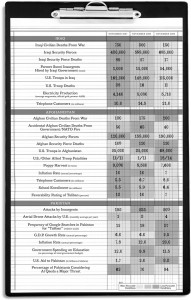
In the coming months, we are going to be inundated by the rhetoric surrounding an economic policy debate over the question of whether or not the Federal Government ought to begin to reduce the fiscal imbalances in its budget. The ideology of Joseph Schumpeter's Creative Destruction will be pitted against ideology of John Maynard Keynes, and the dominant issue will be the question of retrenchment: Should the Federal Government retrench? … or .. Will consumers and businesses continue to retrench?
 The chart, which I have used before. It portrays the buildup of debt as a percentage of GDP for the different categories indebtedness that are at the center of the retrenchment question. All of the data from 1946 forward was compiled by the Federal Reserve. Earlier data is from a mixture of sources including the Census, Fed, GAO, and Morgan Stanley. I believe , it shows why some kind of retrenchment is now inevitable.
The chart, which I have used before. It portrays the buildup of debt as a percentage of GDP for the different categories indebtedness that are at the center of the retrenchment question. All of the data from 1946 forward was compiled by the Federal Reserve. Earlier data is from a mixture of sources including the Census, Fed, GAO, and Morgan Stanley. I believe , it shows why some kind of retrenchment is now inevitable.
Although most economists and policy makers like to think of an economic system in mechanistic terms, the economy is in fact an unpredictable living thing made up of millions of players who move forward on a one-way trip through time along a pathway shaped by an interplay between chance and necessity. In this sense, you can think of the figure above is an outward manifestation of the historical behaviour of a complex living organism. When we hear pundits speak of the interplay of fear and greed, Greenspan's “irrational exuberance, or Keynes' “animal spirits” they are talking about the living aspects of this system (to which they immediately slip backward in to applying mechanistic diagnostics). When they do so, they forget that all living systems are complex open systems that use an ever-changing homeostatic mix of positive and negative feedback loops to maintain stability, while they maintain their structure by feeding on and expelling waste into their environment. When these internal control loops get out of balance, the homeostatic regulating system breaks down, and the entire organism goes out of control in a form of runaway behavior, like cancer cells in living tissue.
Continue reading “Journal: Reflections on the US National Debt”






